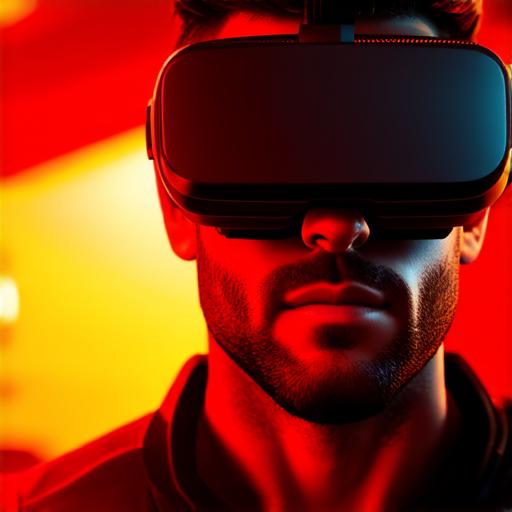
What does experiencing virtual reality feel like?
Virtual reality (VR) is a rapidly growing technology that allows users to enter and interact with simulated environments in a way that feels incredibly realistic. For those who have never experienced VR before, it can be difficult to understand just what it feels like.
First, let’s look at the physical sensations associated with VR. One of the most important aspects of VR is its ability to simulate a wide range of environments, from outdoor landscapes to indoor spaces. When a user enters a virtual environment, they often experience a sense of immersion that can be overwhelming.
This is because VR technology uses a combination of visual and audio cues to create an atmosphere that feels as if the user is truly in the simulated space.
For example, when a user is exploring a virtual forest, they might feel the wind blowing through their hair, hear the rustling of leaves, and smell the fresh scent of pine trees. This level of immersion can be so intense that it can sometimes make users feel as if they are actually in the real world.
In addition to these physical sensations, VR can also produce a range of emotional reactions.
For many users, VR can be a way to escape from the stresses and pressures of everyday life. When a user is immersed in a virtual environment, they can experience a sense of freedom that they may not feel in their day-to-day lives.
For example, a person who has been stuck in an office for months might find that VR allows them to explore a new world and interact with new people in a way that feels refreshing and invigorating. In this way, VR can be a powerful tool for reducing stress and improving mental health.
However, not all experiences with VR are positive. For some users, the immersion and intensity of virtual environments can lead to feelings of anxiety or discomfort. This is particularly true for people who have a history of motion sickness or who are easily overwhelmed by new experiences.
In order to understand the full range of emotions associated with VR, it’s important to consider individual differences in how people respond to different stimuli. Some people may be naturally more receptive to the sensory overload of VR, while others may find it overwhelming or uncomfortable.
Furthermore, research has shown that the emotional response to VR can vary depending on the context and purpose of the experience. For example, a user who is exploring a virtual world for entertainment may have a different emotional response than someone who is using VR for work-related tasks, such as training or simulation exercises.

In order to fully understand what it feels like to experience virtual reality, it’s important to try it out for yourself. Whether you’re a developer, a gamer, or just someone who is curious about this exciting new technology, VR can be a truly transformative experience that opens up new worlds and possibilities.
FAQs:
What does experiencing virtual reality feel like?
VR can produce physical sensations such as immersion and a sense of being in a real environment. It can also produce emotional reactions such as stress relief, excitement, and anxiety.
Is VR only for gamers?
No, VR can be used for a wide range of purposes, including work-related tasks, education, and entertainment.
Can people experience motion sickness with VR?
Yes, some people may experience motion sickness when using VR, particularly if they are prone to it or if the experience is too intense.


